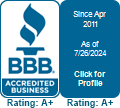| 501c3 - Frequently Asked Questions |
 |
 |
 |
|
1. Who would qualify for 501c3 status? - Nonprofit corporations that are formed for charitable, educational, religious or scientific purposes.
2. I am trying to set up a fund for my relative who is suffering from cancer. Would I qualify for a 501c3 status? - No. 501c3 organizations don’t benefit one specific individual.
3. I have an LLC and plan on opening a nonprofit organization. Can I be a business owner and a Board member of a nonprofit? - Yes, you can, as long as there is no conflict of interest.
4. I sit on the Board of an A-Charity. Could I also be a Board member of a B-Charity? - Yes, you may.
5. I plan on operating my charity in a foreign country. Can I do it? - Yes. However, you must follow IRS guidelines in setting up and operating your organization.
6. May I receive tax deductible contributions while in the process of applying for 501c3 status? - If your organization is applying for 501c3 within 27 months of the incorporation date, then the effective date of your status will be retroactive to your incorporation date. Therefore, all donations collected since the incorporation date will be tax deductible upon IRS approval. - If the organization is applying past 27 months of the incorporation date, then it may request for an extension of time to apply for exemption and get recognized as exempt from the date you got incorporated. In this case, the organization must furnish explanation why it did not file the application within the 27-month period.
7. May a 501c3 organization show a cash balance at the end of the year? - Yes, it may.
8. What form should a 501c3 organization file on an annual basis to keep its tax exempt status? - Public charities generally file either a : a. Form 990 (Return of Organization Exempt from Income Tax) if its gross receipts for the preceding year were over $200,000 or total assets were worth more than $500,000; b. Form 990-EZ (Short Form Return of Organization Exempt from Income Tax) if its gross receipts for the preceding year were over $50,000 and less than $200,000 and total assets were worth less than $500,000; or c. Form 990-N (Electronic Notice (e-Postcard) for Tax-Exempt Organizations not required to File Form 990 or 990-EZ) if its gross receipts were under $50,000. Subject to change annually
9. When is the IRS annual information return due? - Forms 990, 990-EZ, and 990-N must be filed by the 15th day of the fifth month after the end of the organization’s annual accounting period. The due date for the Forms 990-EZ and 990 may be extended for three months, without showing cause. An organization cannot request for extension for filing Form 990-N.
10. What is the benefit of applying for 501c3 status? - 501c3 approved organizations are exempt from Federal Income tax. They can also accept tax deductible donations and apply for government and private grants.
11. What is the difference between a Public Charity and Private Foundation? - The primary distinction is an organization’s source of financial support. Public charities receive their funding from general public, corporations and government or private grants. Private foundations receive their funding from a limited number of donors.
12. I have a small ministry with a minimum amount of funds coming in and out. How important is it to keep the books? - No matter what size your organization is, it must keep accurate books. The charity must be able to document the sources of receipts and expenditures on Form 990. If an organization does not keep required records, it may not be able to show that it qualifies for tax-exempt status or should be classified as a public charity. Thus, the organization may lose its tax exempt status. When good recordkeeping systems are in place, a public charity can evaluate the success of its programs, monitor its budget, and prepare its financial statements and returns.
13. Are there any penalties for not filing 990 or 990-EZ on time? - Yes. If a form 990 or 990-EZ is not filed, the IRS may assess penalties on the organization. This penalty also applies when the filer fails to include required information or to show correct information.
14. What charitable organizations fall under educational organizations? - Schools such as primary or secondary school, a college, or a professional or trade school, which have a regularly scheduled curriculum, faculty and enrolled body of students; - Organizations that conduct public discussion groups, forums, panels, lectures, or other similar programs; - Organizations that present a course of instruction by means of correspondence or through the use of television or radio; - Museums, zoos, planetariums, symphony orchestras, or similar organizations; - Nonprofit day-care centers; - Youth sports organizations.
|

